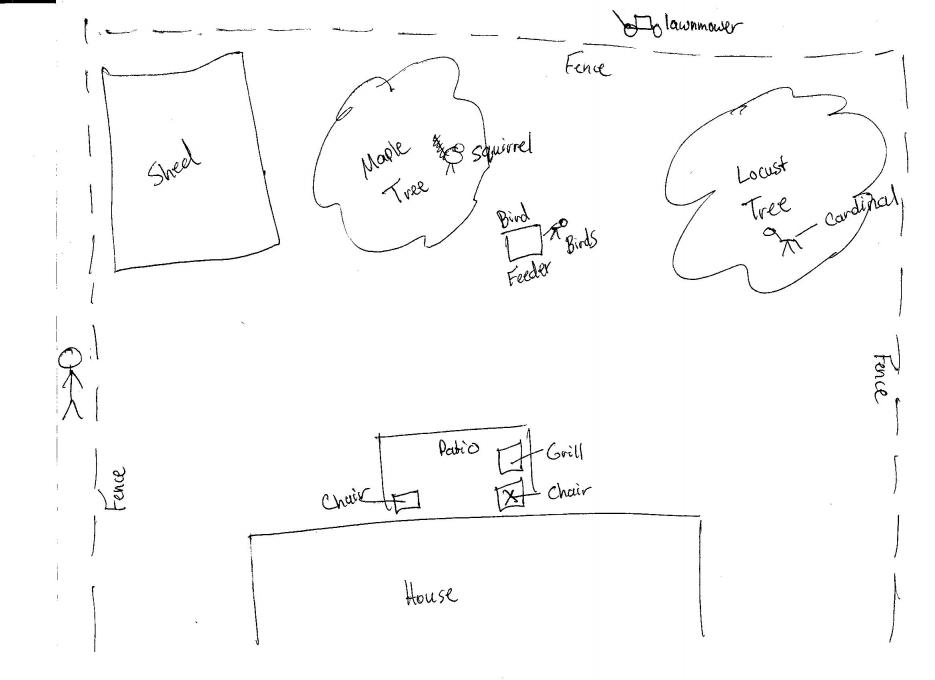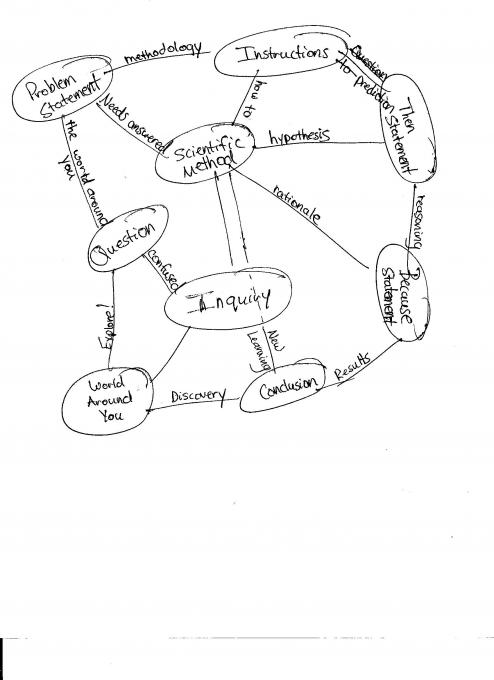Kevin
Forum Replies Created
Viewing 12 posts - 1 through 12 (of 12 total)
-
KevinParticipantRubrics are great for the students as well as the teacher. The students know the expectations of the project and teacher and the rubric allows the students to achieve that level of completion in a variety of ways. The teacher does not have to be as specific if the rubric is written broadly enough for all students to achieve the level of success that would like to meet. Grading for the teacher is easier and the students produce a product that meets the expectations of the teacher.in reply to: Sharing Student Projects #831545
-
KevinParticipantI typically narrow the focus of the students' scientific experiments by limiting the options for the experimental variables. I do so often because of supplies concerns, money concerns, or time constraints the class is under. Some other challenges I have faced are students unable to write well enough and clearly enough for classmates or myself to be able to read. More time does help as well as laptops for students to type out their experiments. The conclusion of a students experiment can be written using a writing scaffold so all the students need to do is copy the sentences and fill in the blanks with their own information.in reply to: Assessing Investigations – Classroom Case Study #828497
-
KevinParticipantI am not currently teaching but when I do the database I will be using is Monarch Watch because there are schools in my community that have created Monarch butterfly projects already and the population of Monarch butterflies are quite large. The elementary projects already in progress have shared their data with the community already and I would like to perpetuate the counting further. If I had students they could choose a variety of factors to determine the effects on the monarch population. Factors such as the types of plants, the type of predators, the weather and various others factors.in reply to: Data Literacy Through Citizen Science #828300
-
KevinParticipantMy students are provided a list of questions that can be answered by conducting an experiment. I ask the students to identify the experimental and dependent variables in each question. At the top of the page I have provided notes that state that the experimental variable is the variable that can be manipulated or changed and the dependent variable is the variable that you will measure the effects upon. Once the students have been able to identify the variables correctly in class I ask the students to flip it over and write their own investigative questions and then identify another student's experimental and dependent variables in each of those questions.in reply to: Launching Investigations #827601
-
KevinParticipantI have not done a citizen-science project and I am not currently teaching because I am taking care of an elderly parent. When I do a CS project I would like to do the monarch one because students are able to easily conduct an experiment by writing questions, conducting the experiment and analyzing the data obtained. Monarch populations fluctuate greatly each year so finding enough butterflies may be problematic. Science does not guarantee anything and when results are not what students expected the students often feel frustrated which is new to them. Students often expect everything to work out fine and when it does not then a student's reaction can be an issue.in reply to: Symbiosis in the Soil – Classroom Case Study #827433
-
KevinParticipantI provide students with "stem questions" in which only the first half of the question is present and the student must then complete the question to determine what he/she wants to know. Some students have not asked any questions for quite some time because they have been force fed information their entire education. Once the student understands how questions are to be written for a good scientific exeriment can answer them I allow the students to provide me questions throughout each topic either he/she wants to answer or provides the questions to other students for them to answer.in reply to: Supporting Open-ended Questions #827431
-
KevinParticipantMy background is typically very quite because my neighbors are watching Netflix all day and night so I am able to hear quite a bit. Occasionaly I will hear a bird I can not identify but usually it is just cardinals, blue jays, sparrows and robins. My neighbor started to talk to me once he realized I was doing something but typically he just ignores me. The neighbor behind me decided to mow his yard for the second time this year which meant his dogs were barking fron inside the house (true but funny). A squirrel was chirping at the neighbor mowing his lawn and I also heard a cardinal marking his territory because of the bird feeder he visits numerous times. Often students are unable to pull themselves away from the handheld devices which parents use as babysitters. If the students were able to pull themselves away they would discover a world around them they would not have observed for quite some time or with any listening skills. If an enire class was able to do this the number of eyes and ears would significantly increase the amount of wildlife observed.
 in reply to: Encouraging Observations #827427
in reply to: Encouraging Observations #827427 -
KevinParticipantA scientific experiment in the "real world" rarely provides results that are expected. Students are accustomed to getting an answer or results that proves their hypothesis to be correct and consequently never experience the struggle a professional scientist deals with. I use this as an opportunity to further challenge a students own beliefs and thoughts about what he/she thought was going to happen so the student can improve or modify the experiment or to simply analyze the results and develop a new hypothesis. The inquiry continues when a student chooses to go in this direction.in reply to: Linking Citizen Science & Inquiry #826939
-
KevinParticipantThe students I taught were always positioned as individuals that did science. The first six weeks of the school year I would implement the scientific method to a student suggested topic. The students would learn the parts of the methodology and then conduct the experiment. The expectation for each course topic would then incorporate the scientific method so students had the opportunity to "do science" instead of "reading science" or "writing about science". Sometimes the experiment had clear flaws but those flaws provided an opportunity to further enhance learning. The students also had the opportunity to select a direction for their experiments without my influence. The students were the scientists so the power of choice was there but they were also expected to persevere any challenges they had like real scientists would do. Society would not be in the state it is today if we had citizens that were able to critical think and analyze the information presented to them to determine if it was reasonable or not.in reply to: Citizen Science in Your Classroom #826938
-
KevinParticipantI also have not used any citizen science projects but they are important for students to compare their results/data with others that belong to another part of society. Science is a collaborative effort, especially on the professional level, to be able to compare results in similar or exactly the same experiment to see the effects in other parts of the country or world. I have taught students in middle school and high school that conduct similar experiments and have the high school students further the middle school students experiments further by questioning their methodologies or simply sharing what each student learned. A project like this would allow that comparison to be done on a much broader scope and scale.in reply to: Intro to Citizen Science #826936
-
KevinParticipantI taught anatomy and I would have students conduct an experiment in which they could choose an experimental variable that would effect their heart rate the most. The level of inquiry would be guided inquiry because I provide the students with a list of option they could choose from as well as telling them to choose the amount of that activity to determine its effects. The science practices the students learn are not only the scientific method but also how to critically analyze how to obtain the data carefully and accurately, teamwork because the students are unable to do the experiment on their own, the level of blood pressure and heart rate by using a blood pressure cuff and also factors that can affect a person's heart. I could instruct the students to come up with their own variables that would have an effect on a peron's blood pressure and heart rate and then ask them to select one from their list. Allowing the students to test themselves on different days could also be implemented so the students could see the effects of the previous day or the energy drink they consumed.in reply to: Inquiry in Your Classroom #826578
-
KevinParticipantMy definition of Inquiry is to use the given qualities every child posses to learn about the world around them in a provided direction to be further explored. Toddlers are inquisitive to learn about the world around them in order to determine what is pleasurable, harmful, hot, cold, tastes good or not and etc. The inquisitiveness of each student needs to be reinvigorated to explore the world around them not just in school but outside the school building in the society and world around them. Yes, the scientific method is a methodology for the students to use to explore but the student first needs to be able to ask the question that needs to be answered throughout life.
 in reply to: Intro to Inquiry #826569
in reply to: Intro to Inquiry #826569
Viewing 12 posts - 1 through 12 (of 12 total)

